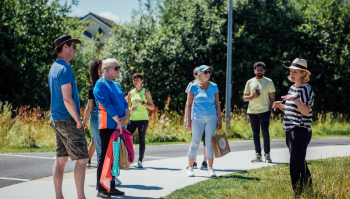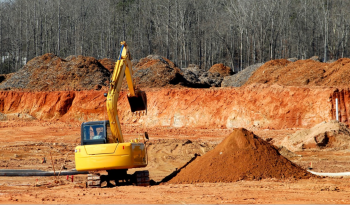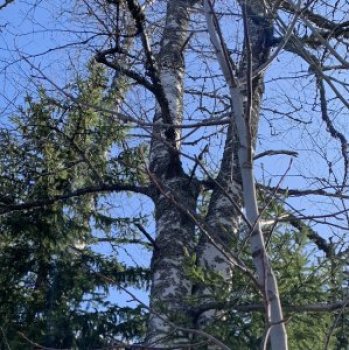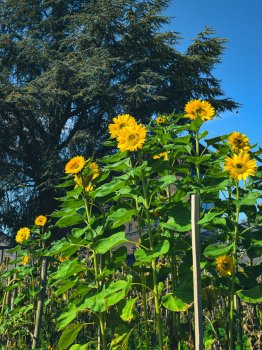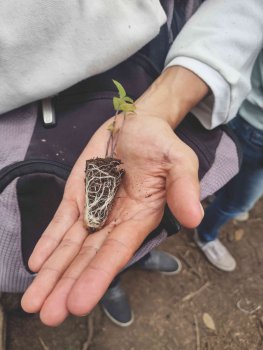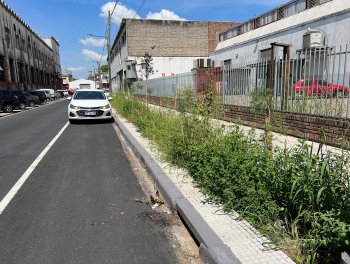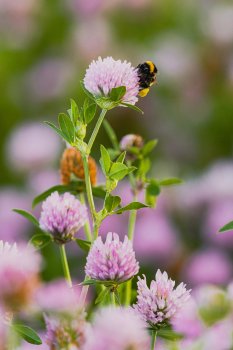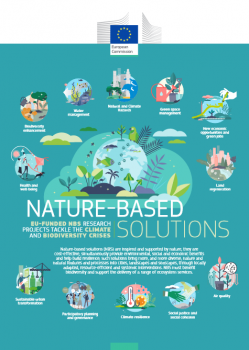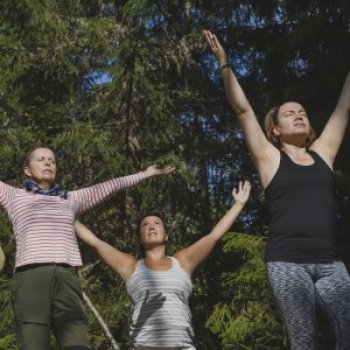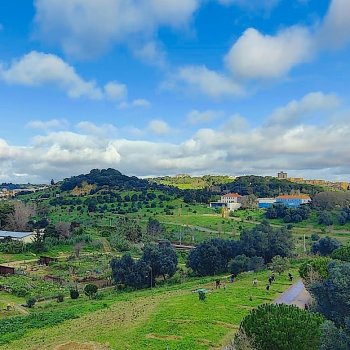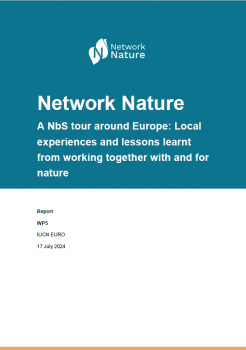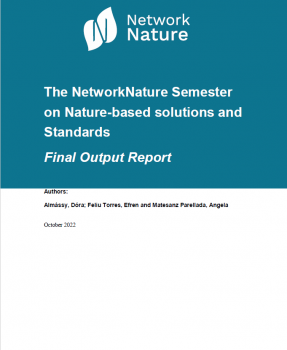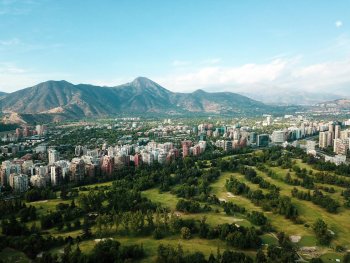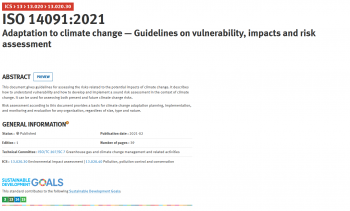Usage of Mobile Applications or Mobile Health Technology to Improve Diet Quality in Adults
The use of mobile applications for dietary purposes has dramatically increased along with the consistent development of mobile technology. Assessing diet quality as a dietary pattern or an indicator across key food groups in comparison to those recommended by dietary guidelines is useful for
NbS Hubs site visits Posters
During spring 2024, Hubs organised local site visits in their regions for a wide range of stakeholders. 10 NbS hubs represented their experiences of the site visit to a local NbS in a poster. These posters summarise the main outcomes from these site visit, including a short description of the NbS
Seedbed Intervention Images
Do you want to feel the full experience of our recent Seedbed Interventions in the Seed Cities of Burgas, Limerick, Lahti, Umea, Tallinn and Versailles? Fear not. You can see for yourself in this gallery of imagery from the interventions. Publication Date: 03 Feb 2023 Author(s): City of
ZÖLD-KÉK INFRASTRUKTÚRA: Kedvezményezetti találkozó az építésügyről és településfejlesztésről
2019. decemberében megtartott kedvezményezetti találkozó prezentációs anyagai, többek között az ITM, BME, Miniszterlenökség, Lechner Tudásközpont, MUT, Budapest XII. és XIII. kerületi előadók bemutatásában.
Conexus key learning factsheet series - Monitoring NbS together for greater uptake and upscaling
Successful implementation and mainstreaming of Nature-based solutions (NbS) require understanding how their benefits are perceived within society and businesses. To build support and collaboration in evaluating NbS benefits, the CONEXUS project has developed an assessment frame, including a
Co-Creation in the making: Introducing and Co-Planning seedbed interventions
This report provides an overview of the work of WP3 partners, city partners and their stakeholders since the challenge workshops4 were implemented in each of the six Cultivating Cities in October and November 2021 and January 2022. This report also introduces the concept of seedbed interventions by
- Document
Keys for Forest Types Classification Schemes to support the reporting of Support Sustainable Forest Management Indicators in Various Contexts
For biodiversity monitoring, GO-SURF has emphasized the need for standardization efforts, even through simple solutions such as transition tables.
CONEXUS key learning factsheet series - Cost-benefit analysis (CBA) for valuing NbS in CONEXUS pilot projects
This factsheet summarizes the results of a Cost-Benefit Analysis (CBA) undertaken to evaluate the Social Return on Investment (SRI) through the Net Present Value (NPV) and Internal Rate of Return (IRR) of three CONEXUS pilot projects: the Urban Allotment Network (Barcelona, Spain), Francia Street
Conexus Life-Lab factsheet series - Nature-based Solutions to restore urban hydro-social systems
The Bogotá Life-Lab focuses on restoration actions and capacity-building activities to support peri-urban communities. These activities aim to protect forest and wetland ecosystems, while strengthening communities in border territories, and social acceptance of NbS. Community participation and co-
Conexus Life-Lab Factsheet Series: Francia Street Rain Gardens: SuDS Implementation
The Municipality of General San Martín (MGSM), Buenos Aires, led a project to build linear Rain Gardens (RGs) along Francia Street as part of a Sustainable Urban Drainage System (SuDS) to manage stormwater. As a novel technology for the region, the RGs proved to be cost-effective and socially
Guidance for monitoring pollinators in urban habitats
This guidance aims to bring tools and knowledge for cities to use pollinators as indicators of their urban greening and carry out pollinator monitoring. It builds on the EU Commission guidance for pollinator-friendly cities, and explores options for pollinator monitoring in more depth. It features
Nature-based solutions-EU-funded NbS research projects tackle the climate and biodiversity crisis
Nature-based solutions (NbS) are inspired and supported by nature, they are cost-effective, simultaneously provide environmental, social and economic benefits and help build resilience; such solutions bring more, and more diverse, nature and natural features and processes into cities, landscapes
Lahti Health Forest Informational Brochure
Curious about the lay of the land at Lahti's new health forest? Then check out this new brochure which tells you what you will discover there and the many benefits of a guided experience in nature. Publication Date: 06 Sep 2023 Author(s): Suutari Taru
Forêt de Capet case study
Presentación del estudio de caso PHUSICOS : Forêt de Capet / Présentation de l'étude de cas PHUSICOS : Forêt de Capet
Conexus Life-Lab factsheet series -Fast Forests for Lisbon: Nature, Community, Connections
The pilot Renatura started in late 2021. Its main goal is to bring back biodiversity to urban spaces, while enhancing social inclusion. Fostering a unique private/public sector partnership, the NGO Urbem and the Lisbon City Council convert abandoned public land into Miyawaki-based Fast Forests.
A NbS tour around Europe: Local experiences and lessons learnt from working together with and for nature
The NetworkNature NbS Hubs community came together and showcased a “Live tour of Nature-based Solutions around Europe” at The Nature of Cities Festival, in Berlin, June 2024. Nine NbS Hubs shared insights from ten site visits, presenting their experiences and findings. This report captures the key
The NetworkNature Semester on Nature-based solutions and Standards Final Output Report
Nature-based solutions (NbS) are locally adapted, cost- and resource-efficient, systemic interventions, which can simultaneously provide environmental, social and economic benefits and build resilience to climate change. As such they have a real and transformative potential to address the two-fold
- Document
Decisional Support System to support the revision of forest management plans
OG FORTRACK utilized spatial methods to quantify carbon stock, biomass, and forest types, creating a Decision Support System that facilitates report generation and lowers costs for forest managers.
CONEXUS Policy Brief 7 - Integrating Nature-Based Solutions in Planning Instruments
The Regional Government of Santiago (RGS) aims to incorporate ecological planning criteria into its planning instruments and strategies, fostering a more resilient and equitable city-region. This policy brief outlines the city’s learning-by-doing approach, presenting three pilot projects of Nature-
ISO 14091:2021 Adaptation to climate change — Guidelines on vulnerability, impacts and risk assessment
This document gives guidelines for assessing the risks related to the potential impacts of climate change. It describes how to understand vulnerability and how to develop and implement a sound risk assessment in the context of climate change. It can be used for assessing both present and future
- ‹ previous
- 10 of 20
- next ›



